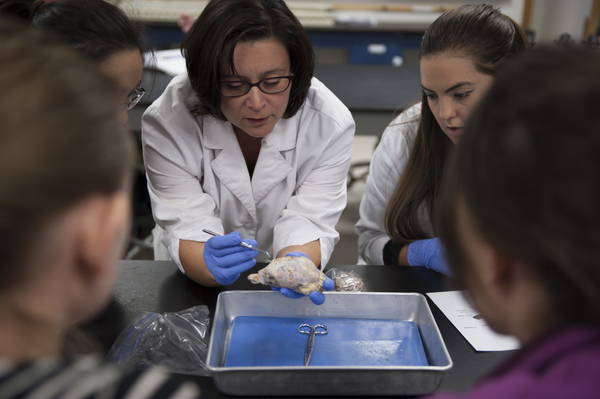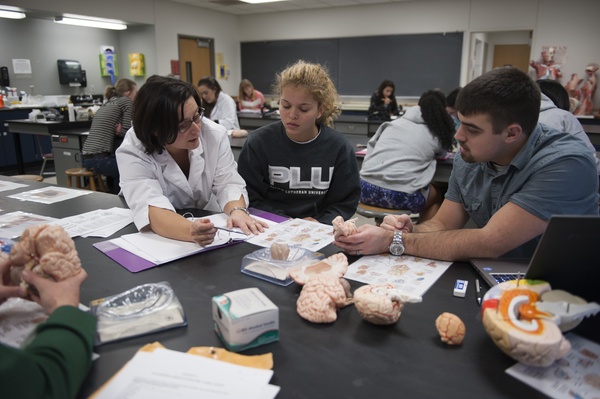
Heidi Schutz, PhD
Department of Biology
Collaborative Student Wikis

Heidi Schutz is an Assistant Professor in Biology and teaches Anatomy and Physiology and Comparative Vertebrate Anatomy. She is committed to implementing the core concepts of Vision and Change into biology education, in addition to implementing active learning as much as possible. She believes a common assumption is that anatomy is a static discipline, and as such, so is learning it via pure rote memorization. With that in mind, she went looking for ways that her students could not only learn anatomical structures in her comparative anatomy course, but also engage in some deeper learning of evolutionary concepts, by making the learning process more active and student-driven.
What is one instructional technique or project that is particularly effective, innovative, or engaging?
“One great way to foster deep learning in students students is via collaborative work that employs the knowledge they are acquiring throughout the course and requires them to seek out new knowledge and engage in synthesis of that material. A colleague of mine in the department (Jacob Egge) had used team dissection projects of different vertebrates in comparative anatomy in the past and I thought that idea fit the bill perfectly. All I needed to do was find a way to check in on student progress throughout the term and give feedback, as well as incentivize the students to do their very best work because their products would be public.”
What related tool or strategy do you use that other PLU faculty might like to try in their courses?
“After a great deal of conversation with colleagues and some wonderful guidance by Dana Bodewes and Layne Nordgren in Instructional Technologies, I decided to use Wikispaces. Educational use is free and students can create a wiki for their group project. I can create an example for them to look at, can assign project teams, and students can upload video and images along with text. In addition, because the very best wikis will be public, we follow strict guidelines for citation and avoiding plagiarism which students adhere to closely and even self-monitor because they are motivated to put out a good product.”
What are the benefits, for you and your students, of utilizing this tool or strategy?
 “There are so many great things about using wikispaces both from an instructor and a student point of view. Here are a few things I love as an instructor:
“There are so many great things about using wikispaces both from an instructor and a student point of view. Here are a few things I love as an instructor:
- I can see the level of contribution that each team member provides to the pages in each project and when they have done it.
- Students can comment on each other’s work or ask me questions via the wiki as I go along. That means that I can provide feedback in real time and not as a large pile of work that I need to grade all at once. Students can also collaborate from almost anywhere at any time, not just while they are in the classroom.
- I can invite expert colleagues from across the world to view the wikis as they progress and they can provide input to students as well.
From the students point of view:
- Real time feedback: They get more frequent and directed feedback, which they find keeps them on track and helps them avoid procrastination because they edit small pieces at a time.
- Since the project had various stages throughout the semester, they had a lot of incentive to get their parts done, get feedback, give feedback to their team members and revise to make it better.
- They were very motivated by the fact that the material could be public and be seen and used by audiences anywhere, including experts in the field who may be in Europe or Canada.”
What advice would you have for someone interested in trying this tool or strategy?
“Start out small and try everything out so that you are familiar with the various elements of the technology. I started out by making a model that had diagrams and videos I created which the students could not only use to create their projects, but which also had content they could use to study for an exam. Check out lots of models of wikis and find ways to make the projects more than just a one-off assignment. Knowing that they can revise and keep building it is a big motivator.”



